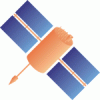Changeset 7701 in ntrip
- Timestamp:
- Jan 18, 2016, 1:48:54 PM (10 years ago)
- File:
-
- 1 edited
-
trunk/BNC/src/bnchelp.html (modified) (2 diffs)
Legend:
- Unmodified
- Added
- Removed
-
trunk/BNC/src/bnchelp.html
r7700 r7701 317 317 318 318 <p> 319 Prof. Mervart started working on BNC in 2005. His sole responsibility for writing the program code ended February 2015. In March 2015, Dipl.-Ing. Andrea Stürze [andrea.stuerze@bkg.bund.de] took over the responsibility for maint enanceand further development ofBNC's source code.319 Prof. Mervart started working on BNC in 2005. His sole responsibility for writing the program code ended February 2015. In March 2015, Dipl.-Ing. Andrea Stürze [andrea.stuerze@bkg.bund.de] took over the responsibility for maintaining and further developing BNC's source code. 320 320 </p> 321 321 … … 1061 1061 </p> 1062 1062 <p> 1063 To cope with an increasing number of transmitting GNSS reference stations, the Federal Agency for Cartography and Geodesy (BKG) together with the Informatik Centrum Dortmund (ICD) in Germany developed a streaming protocol for satellite navigation data called 'Networked Transport of RTCM via Internet Protocol' (Ntrip). The protocol was built on top of the HTTP standard and included the provision of meta data describing the stream content. Any stream could now be globally transmitted over just one IP port: HTTP port 80. Stream availability and content details became part of the transport protocol. The concept was first published in 2003 (Weber et al. 200 3) and was based on three software components, namely an NtripServer pushing data from a reference station to an NtripCaster and an NtripClient pulling data from the stream splitting caster to support a rover receiver. (Note that from a socket-programmers perspective NtripServer and NtripClient both act as clients; only the NtripCaster operates as socket-server.) Ntrip could essentially benefit from Internet Radio developments. It was the ICECAST multimedia server which provided the bases for BKG's 'Professional Ntrip Broadcaster' with software published first in 2003 and of course again as Open Source under GPL.1063 To cope with an increasing number of transmitting GNSS reference stations, the Federal Agency for Cartography and Geodesy (BKG) together with the Informatik Centrum Dortmund (ICD) in Germany developed a streaming protocol for satellite navigation data called 'Networked Transport of RTCM via Internet Protocol' (Ntrip). The protocol was built on top of the HTTP standard and included the provision of meta data describing the stream content. Any stream could now be globally transmitted over just one IP port: HTTP port 80. Stream availability and content details became part of the transport protocol. The concept was first published in 2003 (Weber et al. 2004 & 2005) and was based on three software components, namely an NtripServer pushing data from a reference station to an NtripCaster and an NtripClient pulling data from the stream splitting caster to support a rover receiver. (Note that from a socket-programmers perspective NtripServer and NtripClient both act as clients; only the NtripCaster operates as socket-server.) Ntrip could essentially benefit from Internet Radio developments. It was the ICECAST multimedia server which provided the bases for BKG's 'Professional Ntrip Broadcaster' with software published first in 2003 and of course again as Open Source under GPL. 1064 1064 </p> 1065 1065 <p>
Note:
See TracChangeset
for help on using the changeset viewer.
